Indigenous Governance Database
Articles and Chapters
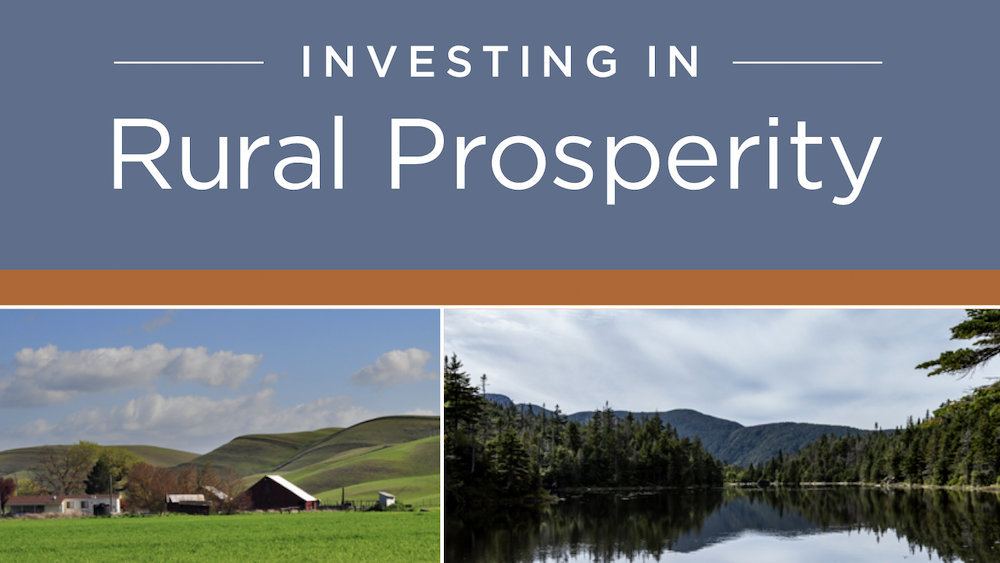
Investing in Rural Prosperity Chapter 7: Native America x Rural America: Tribal Nations as Key Players in Regional Rural Economies
The seventh chapter in Investing in Rural Prosperity, "Native America x Rural America: Tribal Nations as Key Players in Regional Rural Economies", outlines the diversity of Native nations, including with respect to governmental structure and economic opportunity. It also explores the history and…
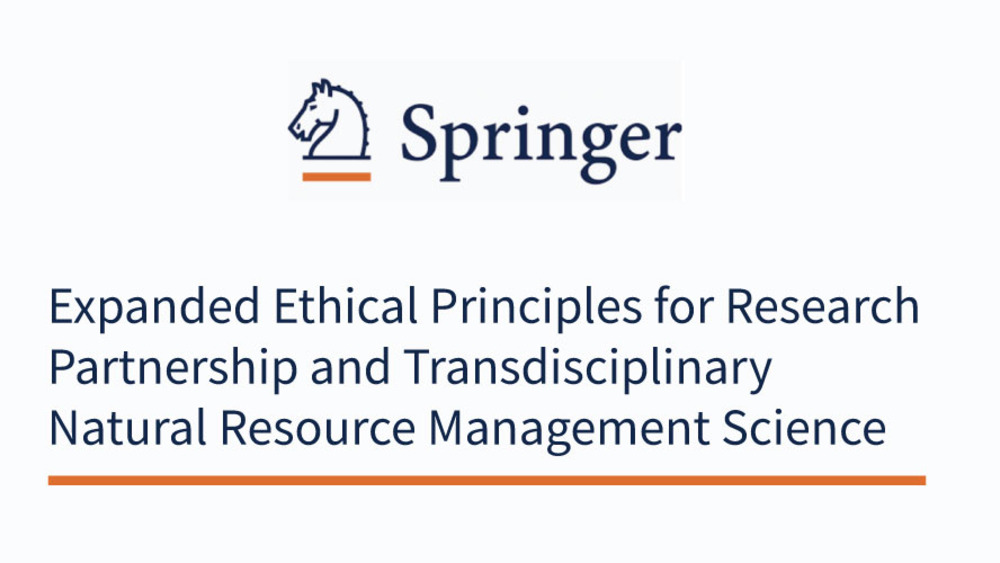
Expanded Ethical Principles for Research Partnership and Transdisciplinary Natural Resource Management Science
Natural resource researchers have long recognized the value of working closely with the managers and communities who depend on, steward, and impact ecosystems. These partnerships take various forms, including co-production and transdisciplinary research approaches, which integrate multiple…
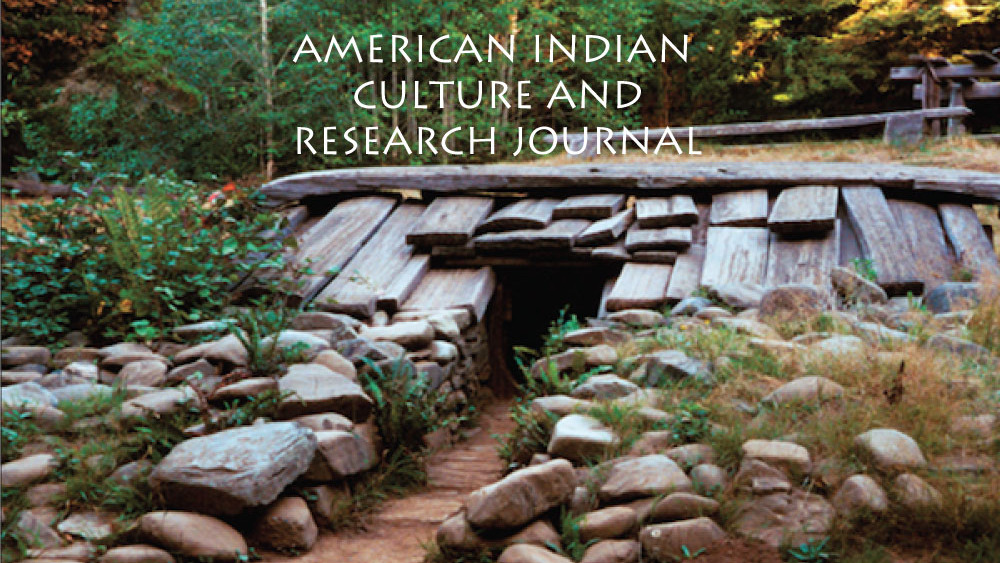
COVID-19 and Indigenous Peoples: Tools to Promote Equity and Best Practices
This is the second volume of a two-volume special issue of the American Indian Culture and Research Journal, volume 44.3, dedicated to the indirect impact of COVID-19 on Indigenous Peoples. The first volume (44.2) covers the degree to which Indigenous Peoples were affected by COVID-19 and how this…
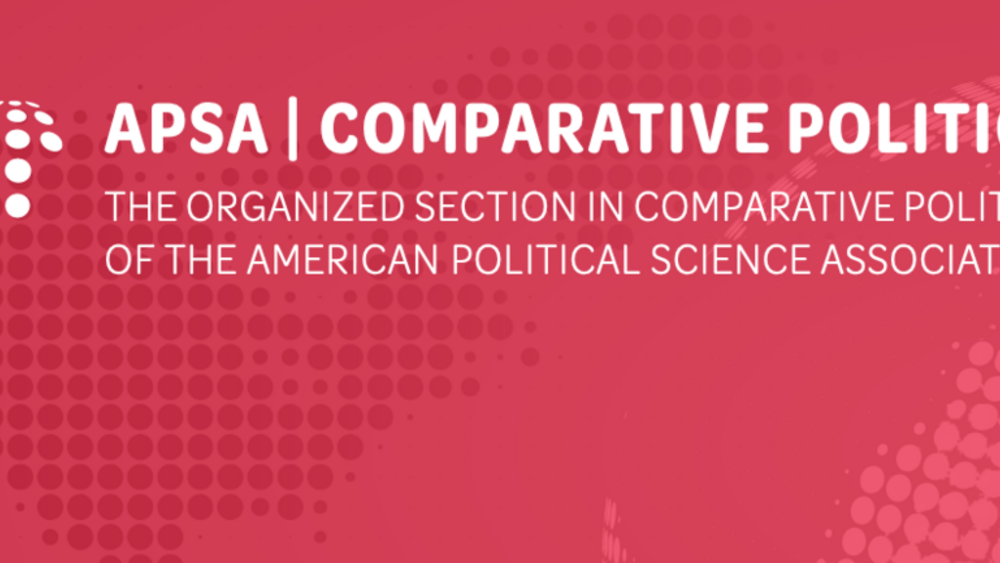
The Rise of Indigenous Recognition: Implications for Comparative Politics
Recent decades have ushered in a new era for the recognition of Indigenous rights. Today, more than half of all United Nations member states recognize some form of Indigenous governance in their constitutions (Holzinger et al 2019), and dozens more have done so statutorily. This marks the…
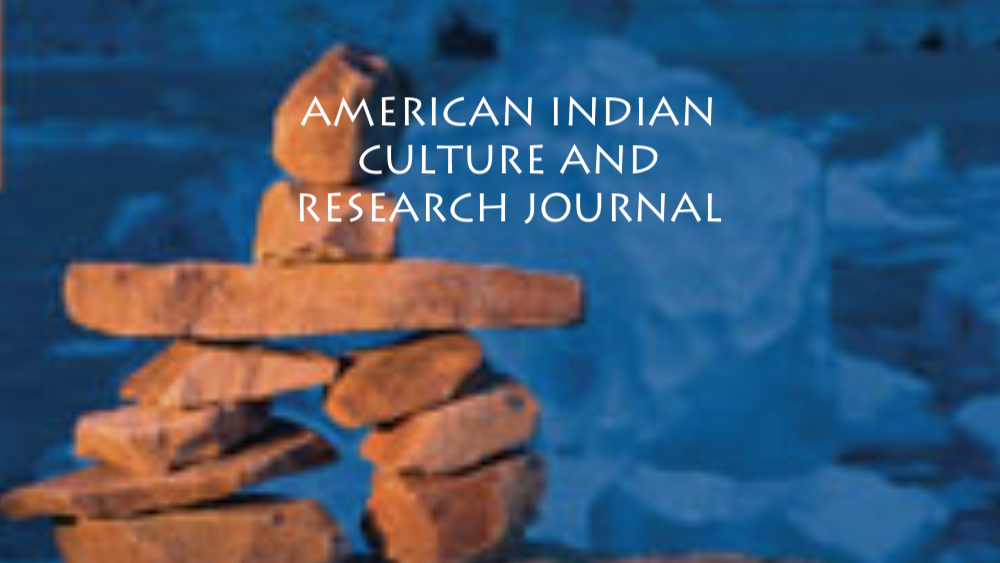
COVID-19 and Indigenous Peoples: Impact of and Response to the Pandemic
In a two-volume, special edition of the American Indian Culture and Research Journal—volume 44, issues 2 and 3—we examine COVID-19’s unique implications for Indigenous Peoples, nations, and communities. We organized these special issues because the COVID-19 pandemic has particularly adversely…
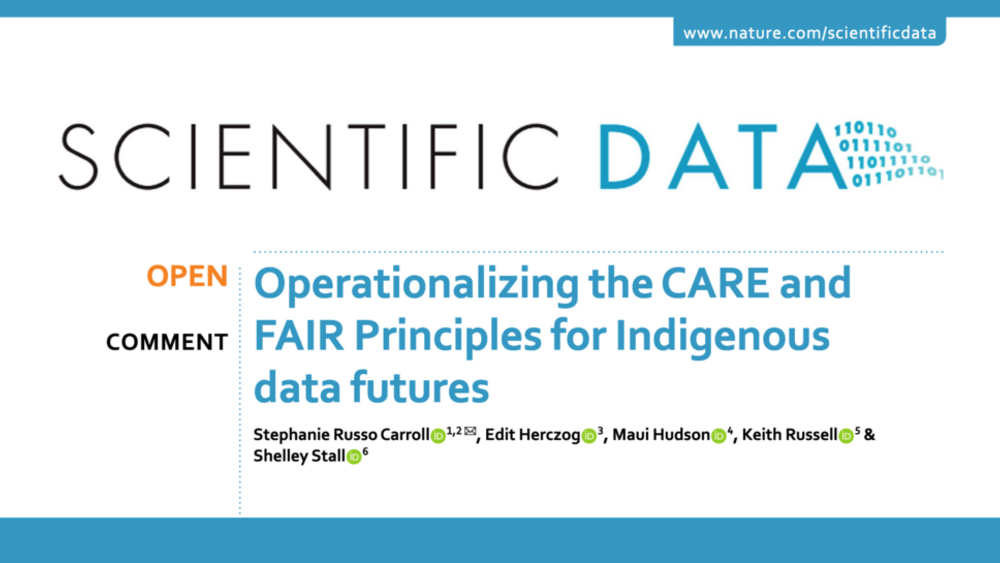
Operationalizing the CARE and FAIR Principles for Indigenous data futures
As big data, open data, and open science advance to increase access to complex and large datasets for innovation, discovery, and decision-making, Indigenous Peoples’ rights to control and access their data within these data environments remain limited. Operationalizing the FAIR Principles for…
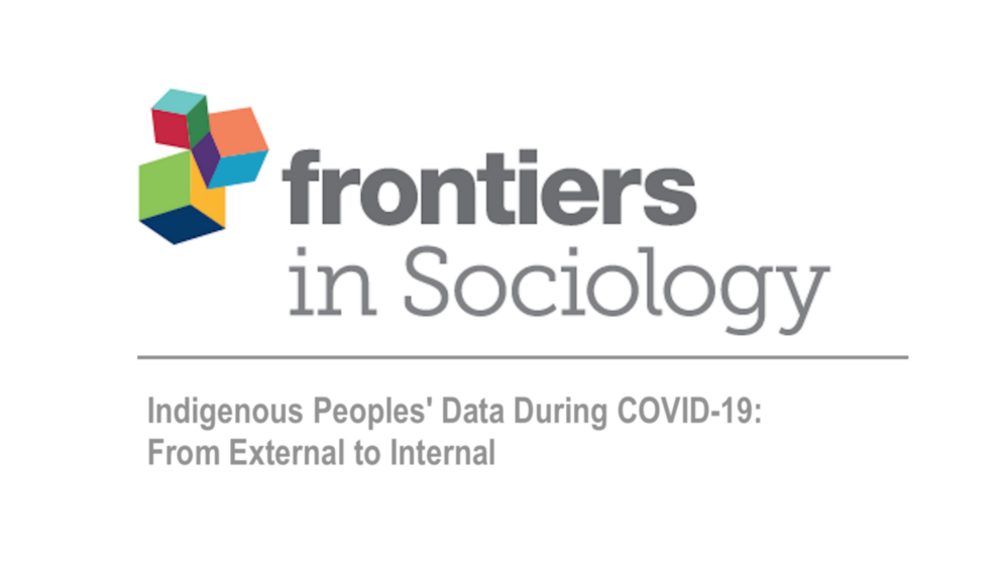
Indigenous Peoples' Data During COVID-19: From External to Internal
Global disease trackers quantifying the size, spread, and distribution of COVID-19 illustrate the power of data during the pandemic. Data are required for decision-making, planning, mitigation, surveillance, and monitoring the equity of responses. There are dual concerns about the availability and…
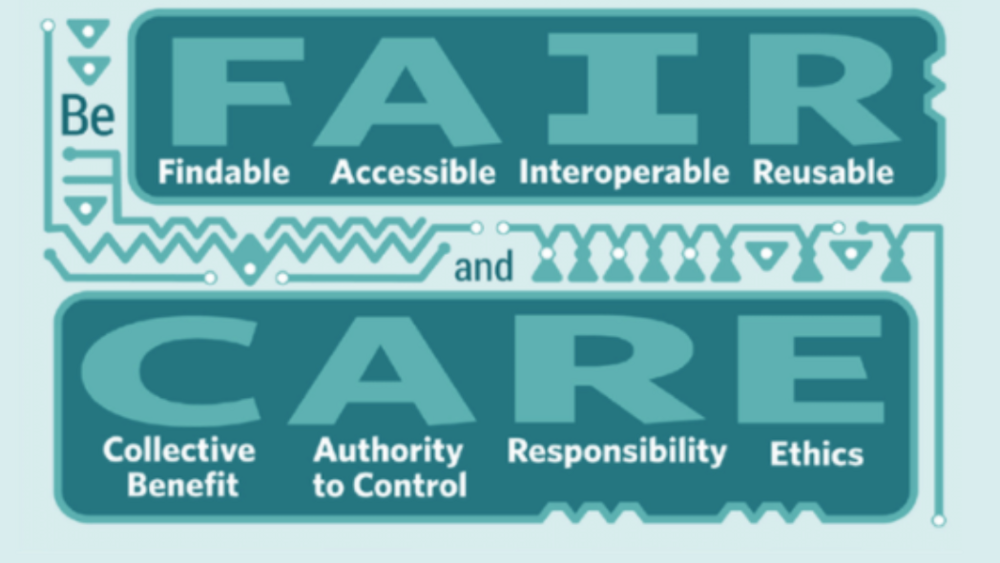
Working with the CARE Principles: operationalising Indigenous data governance
Shifting the focus of data governance from consultation to values-based relationships to promote equitable Indigenous participation in data processes. Indigenous data sovereignty is becoming an increasingly relevant topic, as limited opportunities for benefit sharing have focused attention on the…
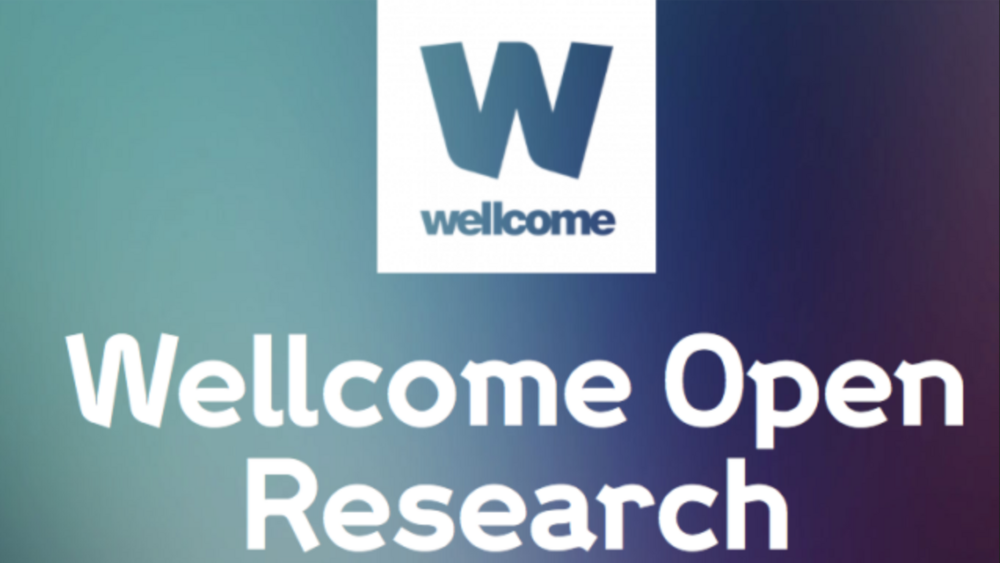
Fostering global data sharing: highlighting the recommendations of the Research Data Alliance COVID-19 working group
The systemic challenges of the COVID-19 pandemic require cross-disciplinary collaboration in a global and timely fashion. Such collaboration needs open research practices and the sharing of research outputs, such as data and code, thereby facilitating research and research reproducibility and…
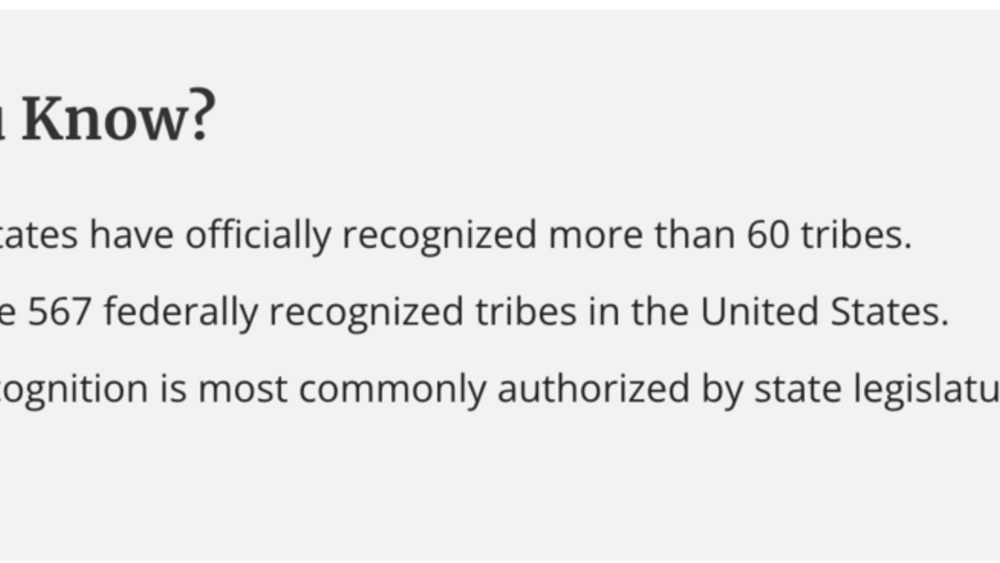
State Recognition of American Indian Tribes
State-tribal relations have a long and complex history in the United States. States’ government- to-government relationships with tribes continue to evolve, taking many forms, including formal recognition. Usually accomplished through legislative action, state recognition of American Indian tribes…
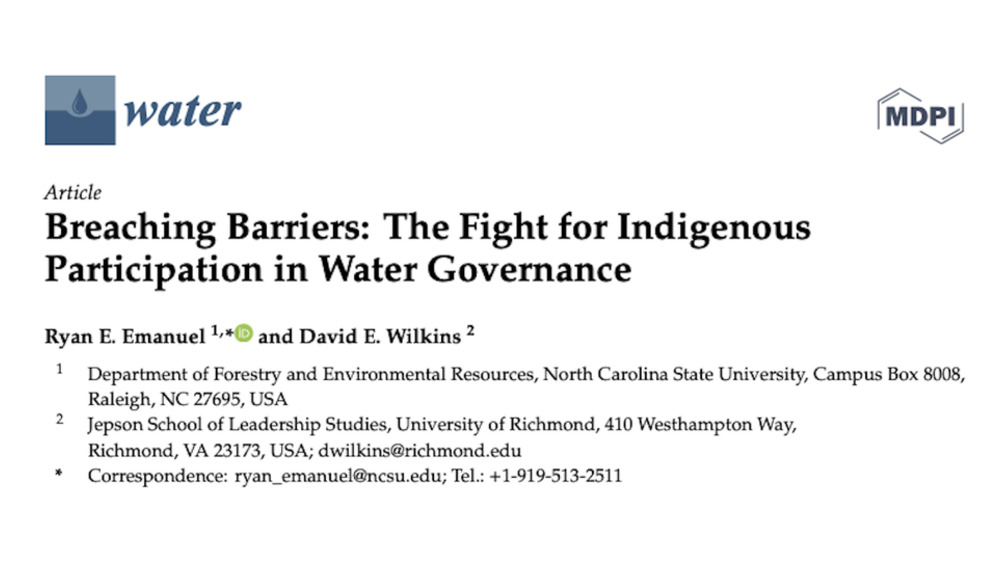
Breaching Barriers: The Fight for Indigenous Participation in Water Governance
Indigenous peoples worldwide face barriers to participation in water governance, which includes planning and permitting of infrastructure that may affect water in their territories. In the United States, the extent to which Indigenous voices are heard—let alone incorporated into decision-making—…
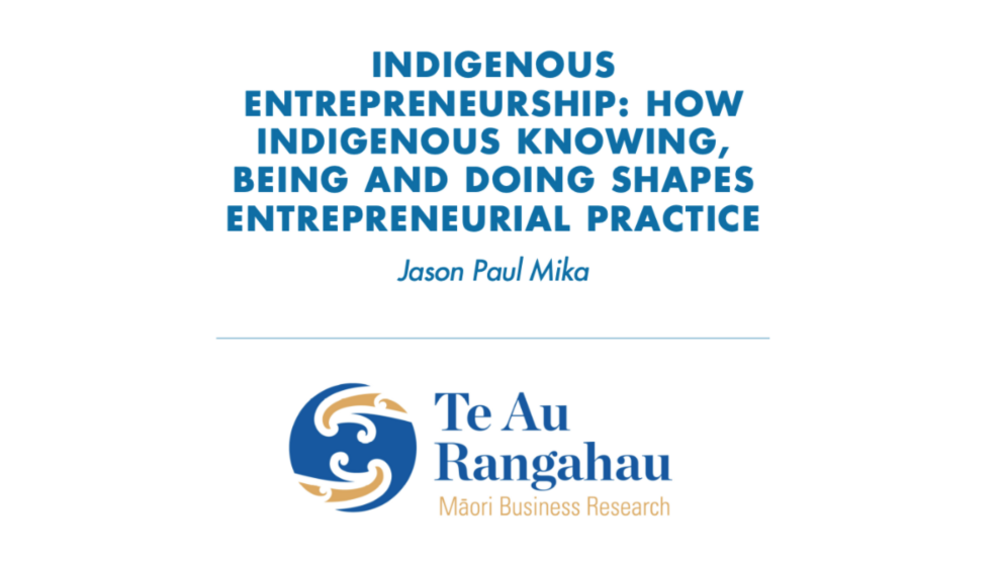
Indigenous entrepreneurship: How Indigenous knowing, being and doing shapes entrepreneurial practice
This chapter introduces the concept and practice of entrepreneurship from an Indigenous perspective. The focus is on understanding what Indigenous entrepreneurship is, where it comes from and how it is understood and practiced in different contexts by people of diverse cultures, languages,…
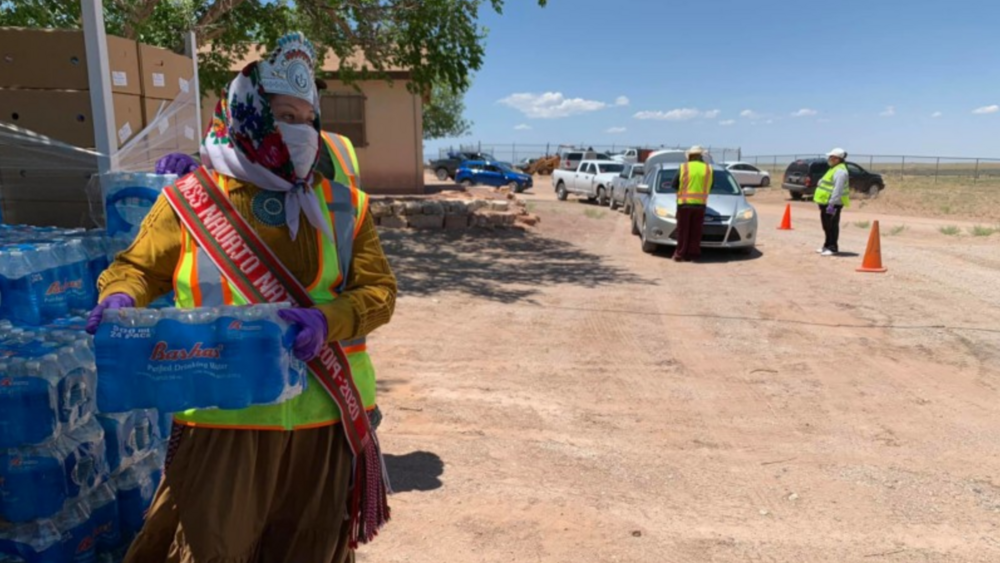
Indigenous Data in the Covid-19 Pandemic: Straddling Erasure, Terrorism, and Sovereignty
On April 10, 2020, Covid-19 case rates on tribal lands were more than four times the rate in the United States.1 Indigenous Peoples across the country continue to be disproportionately impacted by the coronavirus. As of May 18, 2020, the Navajo Nation has the highest Covid-19 case rates surpassing…
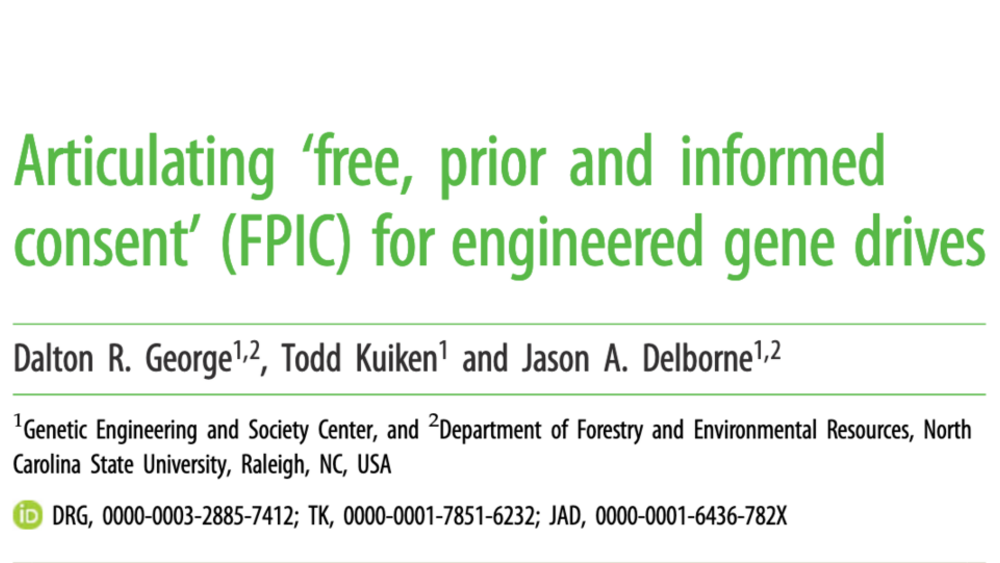
Articulating ‘free, prior and informed consent’ (FPIC) for engineered gene drives
Recent statements by United Nations bodies point to free, prior and informed consent (FPIC) as a potential requirement in the development of engineered gene drive applications. As a concept developed in the context of protecting Indigenous rights to self-determination in land development scenarios…
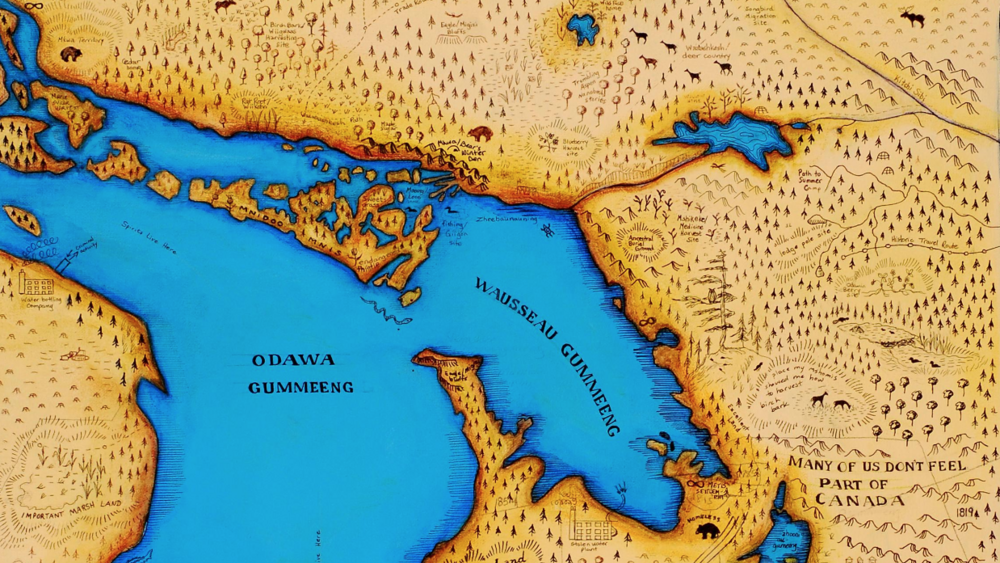
The Rise of the First Nations Land Management Regime in Canada: A Critical Analysis
Federal Budget 2018 contains significant investments in the First Nations Land Management regime, including $143.5 million over five years beginning in 2018-19, and $19 million per year ongoing. In December 2018, the First Nations Land Management Act was amended, lowering the voting threshold for…
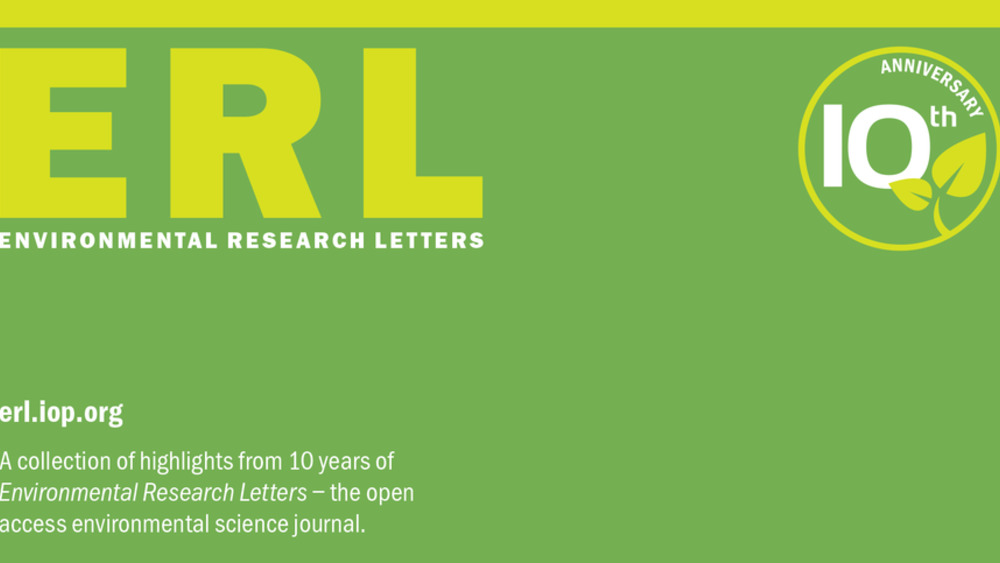
A global assessment of Indigenous community engagement in climate research
For millennia Indigenous communities worldwide have maintained diverse knowledge systems informed through careful observation of dynamics of environmental changes. Although Indigenous communities and their knowledge systems are recognized as critical resources for understanding and adapting to…
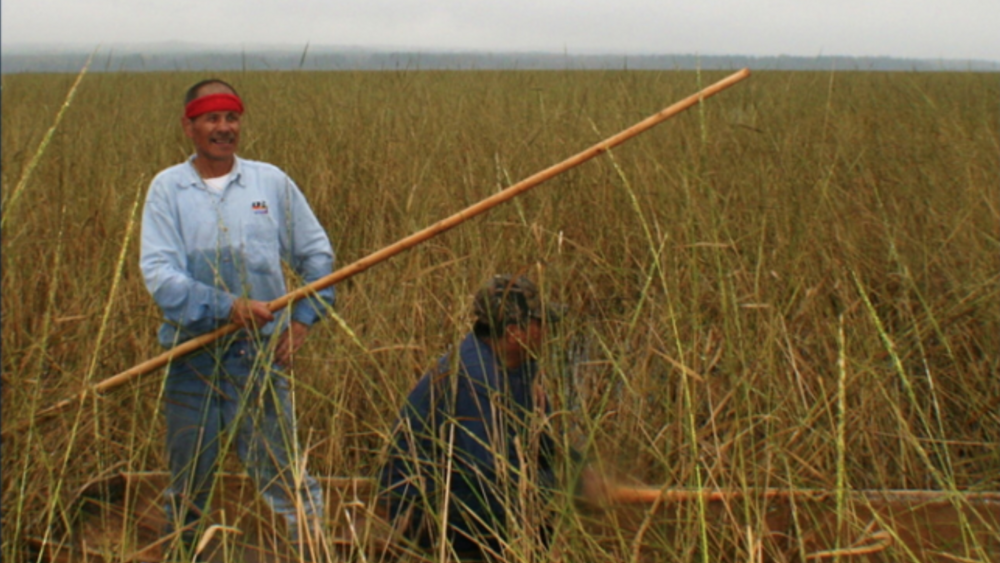
Building an Indigenous Foods Knowledges Network Through Relational Accountability
In recent decades, there has been a movement toward rectifying injustices and developing collaborations between Indigenous communities and mainstream researchers to address environmental challenges that are of concern to Indigenous Peoples. This movement, primarily driven by Indigenous community…

The Klamath River Now Has the Legal Rights of a Person
This summer, the Yurok Tribe declared rights of personhood for the Klamath River — likely the first to do so for a river in North America. A concept previously restricted to humans (and corporations), “rights of personhood” means, most simply, that an individual or entity has rights, and they’re…

This Community Is Striving To Rebuild One Of The Poorest Places In America
PINE RIDGE, South Dakota — Alan Jealous, a 27-year-old construction worker, dreamt of building and owning a home. Homeownership is the cornerstone of the American Dream. But for this citizen of the Oglala Lakota Nation living on the Pine Ridge reservation, a community that regularly tops the list…
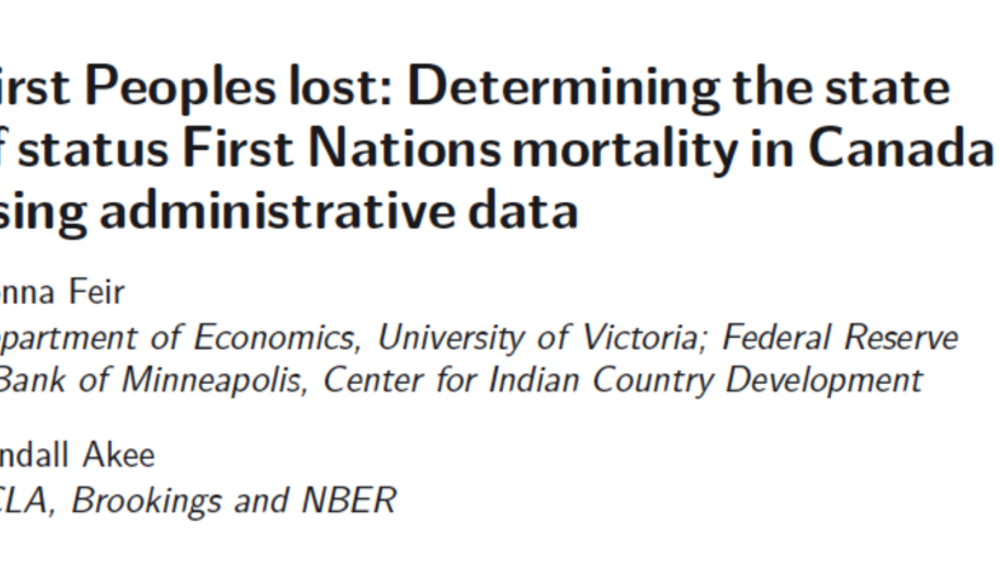
First Peoples Lost: Determining the State of Status First Nations Mortality in Canada Using Administrative Data
We present the most comprehensive set of estimates to date for status First Nations mortality in Canada. We use administrative data from Indigenous and Northern Affairs Canada to establish a set of stylized facts regarding status First Nations mortality rates. Between 2010 to 2013, the mortality…
Pagination
- First page
- …
- 1
- 2
- 3
- …
- Last page
